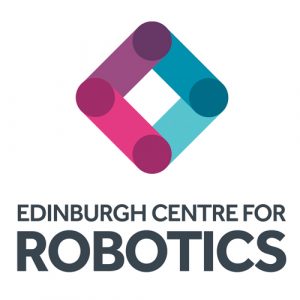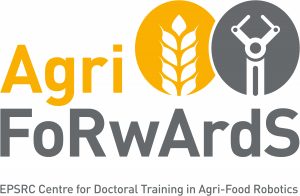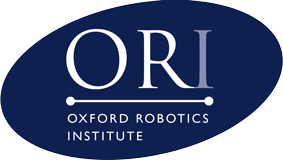Members
The UK-RAS Network currently has 37 member institutions. You can browse information about our members below.

The Intelligent Robotics Group at Aberystwyth focuses on carrying out research that falls under the umbrella of “unconstrained environments”, in the context of both software and hardware, with strong interdisciplinary collaboration. Environments covered include both indoor and outdoor with the full range from land, sea and air all the way to space robotics. Biologically inspired models of control and cognition provide a common theme to much of the group’s work, whilst other computational vision and reasoning techniques provide connections to the other research groups in the department of Computer Science (“Advanced Reasoning”, “Bioinformatics and Computational Biology”, and “Vision, Graphics and Visualisation”).
Research Groups:

Centre for Autonomous Robotics (CENTAUR) is to pioneer new developments for the future of autonomous robotics. We are taking an interdisciplinary approach to do cutting-edge robotic research including rehabilitation robots, assistive robots, human-machine systems, unmanned autonomous vehicles, artificial intelligence, advanced sensing and control of robots. We are developing technologies and techniques that improve robotic hardware and software. And we are investigating how we can use these techniques to address social, economic and industrial challenges. By bettering our scientific understanding, we aim to achieve real-life impact in autonomous robotics.
Research Groups:

The Intelligent Robotics Laboratory at the University of Birmingham performs research at the interface of AI and robotics. We develop generic technologies for autonomous robotics. We specialise in robot vision, robot task planning, and robot manipulation. The lab is part of an interdisciplinary centre for Computational Neuroscience and Cognitive Robotics.
The Birmingham Extreme Robotics Lab (ERL) is Europe’s most prominent university lab dedicated to nuclear and other extreme environment applications of advanced robotics and AI.
Research Groups:

The Bristol Robotics Laboratory (BRL) is the most comprehensive academic centre for multi-disciplinary robotics research in the UK. It is a collaborative partnership between the University of the West of England (UWE Bristol) and the University of Bristol, and home to a vibrant community of over 200 academics, researchers and industry practitioners. Together, they are world leaders in current thinking on service robotics, intelligent autonomous systems and bio-engineering. An internationally recognised Centre of Excellence in Robotics, BRL’s state-of-the-art facilities cover an area of over 4,600 sq. metres (50,000 sq. feet).
Research Groups:

The Machine Intelligence Laboratory is part of the Information Engineering Division of Cambridge University Engineering Department. The Machine Intelligence Laboratory comprises three research groups:
– The Computer Vision and Robotics Group
– Medical Imaging Group
– The Speech Research Group.
Research Groups:

Robotics at Cranfield University encompasses both research and teaching and cuts across a number of Academic Centres, bringing a strong interdisciplinary approach to the subject. Our particular strengths are in Advanced Industrial Robotics and Autonomous Vehicles and Systems. We also have a focus on human factors, ethics and safety in Human Robot Interaction. We work closely with a network of industrial partners as well as pursuing academic research.
Research Groups:

EUREKA Robotics Centre is an innovative research hub within Cardiff Metropolitan University focusing on translating cutting-edge research in AI and robotics to develop advanced solutions for real-world problems. With a highly-interdisciplinary team, our application areas span sectors including healthcare, biosciences, hospitality, education, and agriculture, with specialist expertise in the development of software and hardware for service and social humanoid robotics. With an internationally-recognised staff of highly skilled experts, EUREKA is organised into four complementary research groups:
(1) Healthcare & Hospitality Robotics as a Service (HRaaS) innovation hub
(2) STEAM Hub, focusing on public STEM engagement throughout the UK, Europe, and South-East Asia, with a particular focus on engaging underprivileged groups; as well as an Intelligent Robot (IR) Maker Lab for the 3D design and printing of robotic parts
(3) Autonomous Robotics Lab, developing AI for remotely operated and autonomous systems
(4) Bio-AI and Bioengineering group, exploring the applications of AI and robotics to biomedical problems.
Cutting across these groups, EUREKA also has extensive track-record of policy consultation and engagement in the areas of AI and robotics, with experience working with representatives of the UK government, foreign governments, NGOs, and international institutions.

The Edinburgh Centre for Robotics is a joint venture between the University of Edinburgh and Heriot-Watt University. The underlying theme running throughout the centre’s research is interaction. The robotics infrastructure includes the Atlas robot, the PR2 robot, the Baxter bimanual manipulation platform and several prosthetics platforms, monitoring devices and immersive work cell setups, as well as UAVs, marine technology and immersive virtual reality systems.
Research Groups:

The Essex Robotics group concerns with the development of various kinds of embedded systems and intelligent robots that will be used in environments coexisting with humans. These systems and robots are mobile, autonomous, interactive and intelligent, and will be useful assistants / companions for people in different ages, situations, activities and environments in order to improve the quality of life. It is one of the large mobile robotics groups in the UK, with advanced mobile robotics research facilities.
Research Groups:

Communications, Sensing, and Imaging (CSI) group covers a wide range of both basic and applied research on communications, robotics and autonomous systems. In RAS theme, we focus on the first principles of engineering science with a goal to realise efficient and optimized wireless systems and components for communications, sensing and robotics applications.
Micro Autonomous Systems Technology Laboratory (MAST-Lab) is to conduct research into developing the future tools and technologies used to support systems engineering design of autonomous systems.
SOCIAL AI CDT is based at the University of Glasgow. It is training the next generation of researchers and entrepreneurs in socially intelligent AI.
BEST group is a multidisciplinary research group with 30+ PhDs and Postdocs from Engineering (Electronics / Electrical / Mechanical / Chemical / Robotics) and Science (Chemistry, Physics, Materials). Our research revolves around the development of high-performance electronics and sensing systems on large area flexible substrates.

The Edinburgh Centre for Robotics is a joint venture between the University of Edinburgh and Heriot-Watt University. The underlying theme running throughout the centre’s research is interaction. The robotics infrastructure includes the Atlas robot, the PR2 robot, the Baxter bimanual manipulation platform and several prosthetics platforms, monitoring devices and immersive work cell setups, as well as UAVs, marine technology and immersive virtual reality systems.

The Adaptive Systems Research Group is a multidisciplinary research group at the intersection of Artificial Intelligence and Robotics, ranging into Biology, Artificial Life, Cognitive Science, Psychology, Social Science, to Complex and Collective Systems, as well as Mathematics and Physics of Cognitive Systems. The successes of biological systems, their adaptivity and versatility is unsurpassed. The Adaptive Systems Research Group aims to study the principles that constitute the success of these systems and to harness the principles for a wide range of applications.

The National Centre for Precision Farming is a research group at Harper Adams University that employs innovative technologies, including robotics, autonomous systems, and mechatronics, to create sustainable food production and make best use of the worlds limited natural resources. Using our knowledge of practical farming, we develop precision farming hardware and systems robust enough to operate in, and withstand, agricultural environments, and help meet both present and future global food requirements.
We have practical and commercial experience of using the latest approaches in AI/Deep Learning to identify and classify invasive species of weeds and pests in the field. We both own and develop self-driving autonomous tractors, scouting robots, robot combine harvesters, drones, and other autonomous off-highway vehicles and machines. These have been used in a variety of successful commercial, research, and student projects throughout the UK and around the globe. As a specialist robotics team we also deliver a range of academic courses and knowledge transfer programmes to the Agri-food sector.
Our unique range of resources and facilities include an indoor field for evaluating robots in a range environments and topographies, a 1.2km outdoor off-highway test track, and a 36Ha robot test farm. Our expertise and resources are available for commercial research, but will be made available free, or at minimal charge, for RAS outreach and educational purposes

The The Micro-Engineering Facility for Medical Robotics at the Hamlyn Centre is focused on the development of miniaturised robots for surgery, targeted therapy with micro instruments and smart actuators with integrated sensing and imaging, supported by advances in materials, micro-fabrication, micro-machining, and rapid prototyping technologies. The Centre plays an active role in international collaboration and outreach activities, as well as in the training of surgeons and engineers in robotic technologies, thereby facilitating a fully-integrated clinical approach.
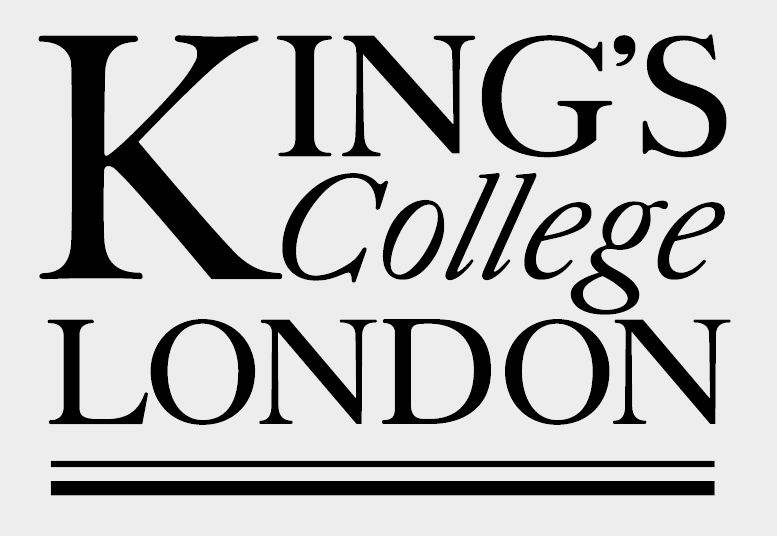
The Centre for Robotics Research (CORE)is to develop world-leading solutions to critical challenges faced in society where robot-centric approaches can improve outcomes. Projects largely revolve around medical themes, while recent research efforts have expanded that remit to include horticulture/agriculture, manufacturing and humanitarian demining.
Research Groups:
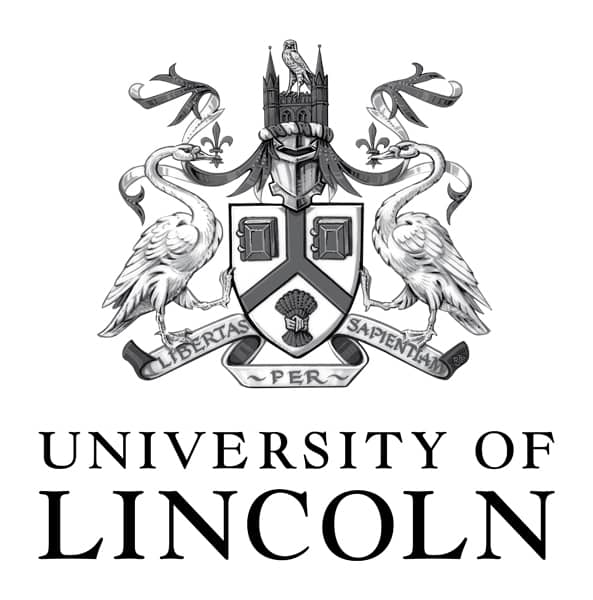
The Lincoln Centre for Autonomous Systems (L-CAS) is the University of Lincoln’s cross-disciplinary research group in robotics. L-CAS specialises in technologies for perception, learning, decision-making, control and interaction in autonomous systems, especially mobile robots and robotic manipulators, and the integration of these capabilities in application domains including agri-food, healthcare, intelligent transportation, logistics, nuclear robotics, and service robotics.

The Intelligent Automation Centre is based at Loughborough University. We work closely with other universities, industry partners, and the Catapult Network to deliver transformative research and innovation.
Research Groups:

The Lancaster Intelligent, Robotic & Autonomous Systems Centre (LIRA) is formed around the autonomous and intelligent systems research at the School of Computing and Communications, SCC (large projects with aerospace and defence industry – BAE, Thales, QinetiQ – on sense and avoid, re-routing, ISTAR and on board real-time video processing for object detection and tracking, civil aviation safety and maintenance as well as intelligent transport through RRUKA.
Research Groups:

The Robotics @ Leeds group are driving innovation in this growing area of technology leveraging a network of more than 100 researchers across multiple disciplines with a shared interest in robotics and artificial intelligence. We are performing world leading research in medical robotics, field and infrastructure robotics, artificial intelligence and enabling technologies for autonomy in robotics.
Research Groups:

The Centre for Autonomous Systems Technology (CAST), provides expertise in autonomous systems from across the University of Liverpool. We carry out world-class research, provide high-quality training and education and, through the Virtual Engineering Centre, collaborate with a range of companies to develop, analyse, enhance and deploy autonomous systems.
Research Groups:

The Robotics Group conducts research into the use of mobile robots in extreme environments. The primary focus of the work is aimed at nuclear decommissioning, but there is also research on robots for the energy sector (offshore wind and substation inspections). The group brings together the Schools of Electrical and Electronic Engineering (EEE), Mechanical, Aerospace and Civil Engineering (MACE) and Computer Science (CS).
Research Groups:

The Rolls-Royce University Technology Centre (UTC) in manufacturing and on-wing technology is based at the University of Nottingham. The UTC is a multi-disciplinary research team exploring all aspects of aerospace manufacture, with particular interests in the areas of fixturing and on-wing inspection and repair robotic systems.
The Cobot Maker Space is based at the University of Nottingham and facilitates the exploration, research and design of human-robot interaction. We offer a welcoming environment to create innovative technology in a space to connect and collaborate with an interdisciplinary group of researchers.
The CMS houses the Cyber-physical Health and Assistive Robotics Technologies (CHART) research group who conduct foundational and applied research in intelligent cyber-physical systems and robotics technologies to support personalised health and well-being.
Research Groups:

Nottingham Trent University has adopted a multidisciplinary approach to robotics and autonomous systems across several different research groups and centres. Our strengths lie within robotics, autonomous systems, design and evaluation of RAS. We have specific expertise in areas of medical, surgical and industrial robotics within the Medical Engineering Design Research Group (MEDRG), and the Computational Neuroscience and Cognitive Robotics (CNCR) research group whose research into computational intelligence techniques takes inspiration and learning from medicine and neuroscience as part of the Computing and Informatics Research Centre (CIRC). All our medical and surgical RAS based research is also linked to our Medical Technologies Innovation Facility.
Research Groups:

The Oxford Robotics Institute (ORI) is built from a collaborating and integrated groups of researchers, engineers and students all driven to change what robots can do for us. Our current interests are diverse – from flying to grasping, from inspection to running, from haptics to driving, from exploring to planning. The ORI researches a broad span of technical topics – machine learning and AI, computer vision, fabrication, multispectral sensing, perception, systems engineering to name a few.

The Centre for Advanced Robotics @ Queen Mary (ARQ) is a cross-faculty multidisciplinary research centre. ARQ aims to bring Queen Mary robotics activities under one roof, increasing visibility, facilitating collaboration, public engagement and moving towards critical mass. One of the main aims of ARQ is to amalgamate, facilitate and promote research and teaching in Advanced Robotics in the widest sense.
Research Groups:
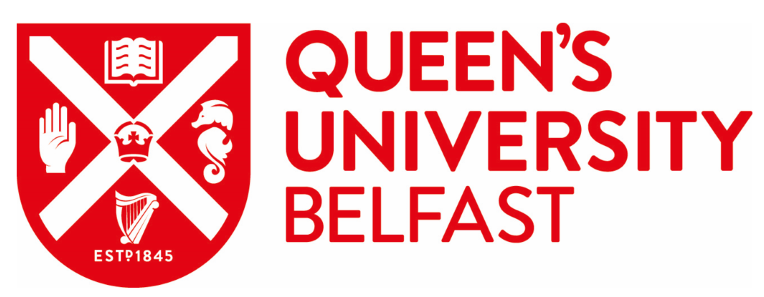
The Centre for Intelligent Autonomous Manufacturing Systems (i-AMS) at Queen’s is a multi-disciplinary team of researchers spanning the disciplines of Electrical / Electronic / Mechanical / Aerospace Engineering, Computer Science, Applied Mathematics, Statistics, and Psychology, working together to develop innovative technologies and solutions to address the challenges of Industry 4.0.
Research Groups:
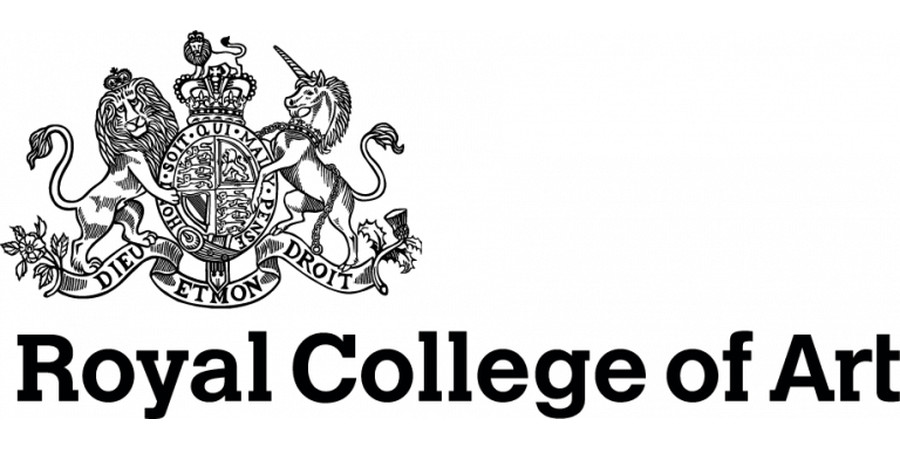
The RCA Robotics Laboratory, led by Dr Sina Sareh, is the focal point for Royal College of Art’s research at the intersections of robotics and design. Combining creative techniques, mechanisms and functions from nature and art, and approaches from the experimental sciences, the lab develops new human-centred robotic technologies enhancing access, safety and performance in a wide range of industrial applications.
Research Groups:

The Autonomous Systems and Robotics (ASAR) has internationally recognised research excellence in Robotics & Artificial Intelligence (RAI). It was appointed the home of the National Advanced Robotics Research Centre in 1987 and was the founding member of the Northern Robotics Network, which became the National Robotics Network (NRN). ASAR is a spoke of the EPSRC Future AI & Robotics for Space Hub, a UK national centre of research excellence in space robots and AI funded through the Industrial Strategy Challenge Fund.
Research Groups:

Sheffield Robotics is an interdisciplinary group with a common interest in robotics research and development. The group spans across departments, faculties and universities, and it is this breadth and expertise which allows Sheffield Robotics to work at the intersection of specialisms. Our interdisciplinary approach makes us faster, more flexible, and better informed. Our research involved investigators in every faculty at both the University of Sheffield and Sheffield Hallam University.
Research Groups:

Sheffield Robotics is an interdisciplinary group with a common interest in robotics research and development. The group spans across departments, faculties and universities, and it is this breadth and expertise which allows Sheffield Robotics to work at the intersection of specialisms. Our interdisciplinary approach makes us faster, more flexible, and better informed. Our research involved investigators in every faculty at both the University of Sheffield and Sheffield Hallam University.
Research Groups:

The Autonomy USRG, led by Prof. Jim Scanlan from the University of Southampton undertakes cutting edge research into autonomous systems in sensing, computing, communications and platforms in order to provide world class, cost effective capabilities for society to develop and maintain a low carbon economy, for earth science and other applications operating at all elevations from sub-sea, surface, land, air and space.
Research Groups:

The STAR Lab leads Surrey’s involvement within the UK-RAS Network, and was an active participant and co-organiser of the UK Robotics Week. It is also the hosting research group of the EPSRC/UKSA national hub on Future AI & Robotics for Space (FAIR-SPACE). Other international community activities include leading the IEEE-CIS Task Force on Intelligent Space Systems and Operations, UK-RAS White Paper on Space Robotics, TAROS 2017, etc.
Research Groups:

The Robotics and Mechatronic Systems Research group (RMSR) is a multi-disciplinary research centre at the University of Sussex. Our vision is to create and deliver fundamental advances in robotics and mechatronic systems through a multi-disciplinary approach to solve challenges in industry, agriculture, healthcare, and emerging technologies. We draw strength from our expertise in the fields of mechanical engineering, electronics, control engineering, materials, and bio-photonics to develop robotic tools, techniques and solutions that contribute to advance technologies in diverse sectors. Specific research areas of the group include medical robotics, robotic rehabilitation, industrial automation, human robot collaboration, soft robotics, teleoperation and robotics in extreme environments.
Research Groups:

The UCL EPSRC RAS capital facility is focused on robotic teleoperation for multiple scales to enable exploration, manipulation and assembly tasks in new worlds beyond human capabilities. The team will work on devices, which allow operators to manipulate micro-, and nano-scale objects as if they were holding and touching them in their hands, technology useful for a broad range of applications from material science to microbiology and nanomedicine.
Research Groups:

The Bristol Robotics Laboratory (BRL) is the most comprehensive academic centre for multi-disciplinary robotics research in the UK. It is a collaborative partnership between the University of the West of England (UWE Bristol) and the University of Bristol, and home to a vibrant community of over 200 academics, researchers and industry practitioners. Together, they are world leaders in current thinking on service robotics, intelligent autonomous systems and bio-engineering. An internationally recognised Centre of Excellence in Robotics, BRL’s state-of-the-art facilities cover an area of over 4,600 sq. metres (50,000 sq. feet).

The Robotics and Autonomous Systems: The Smart and Connected Vehicle is an EPSRC RAS Capital facility. It’s aim is to create an interactive drive in, driver-in-the-loop simulator, integrated with hardware-in-theloop, infotainment and communication simulation, a multi-sensory virtual environment, real world environment and modular autonomous systems workbench; supported by high performance computing and data storage.

YorRobots is a forum for the researchers working in robotics at York. Activity in the area cuts across several departments, including Chemistry, Computer Science, Electronic Engineering, Environment and Geography, Physics, Psychology, and others. We take a multi-disciplinary approach to develop advanced, ethical, safe, trusted, reliable, and certifiable mobile and autonomous robots. We work in exciting application areas including harsh environments, chemical experiments, swarm robotics, and autonomous vehicles.



